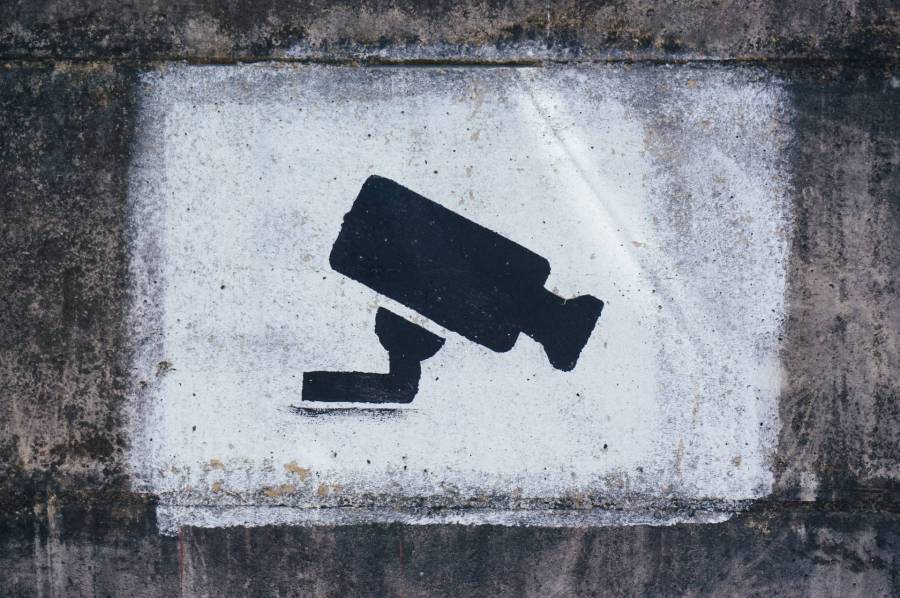AI, or artificial intelligence, has become a powerful tool in various domains, including security and surveillance. However, recent reports have raised concerns about the alarming trend of using AI to spy on social rights activists and journalists, under the pretext of preventing terrorism. This misuse of technology is a direct threat to our fundamental rights, privacy, and freedom of expression. In this article, we will delve into the issue, explore the implications, and discuss the urgent need for safeguards and regulations.
In a recent report presented to the Human Rights Council, a United Nations expert, Fionnuala Ni Aolain, highlighted the growing misuse of AI and other intrusive technologies. Ni Aolain called for a moratorium on AI development until adequate safeguards are in place. The report emphasized the dangers of using security rhetoric to justify the use of high-risk technologies, such as AI, for surveillance purposes. Ni Aolain expressed concerns about the lack of oversight, allowing countries and private actors to exploit AI-powered tech under the guise of counter-terrorism.
AI is a complex and multifaceted technology that poses significant challenges when it comes to regulation. Kevin Baragona, founder of DeepAI.org, describes AI as “one of the more complex issues we have ever tried to regulate.” The struggle to regulate simpler issues raises doubts about the feasibility of achieving sensible regulation for AI. However, an outright ban on AI would also hinder progress and development.
AI has the potential to revolutionize various aspects of society, bringing positive advancements in social, economic, and political arenas. However, its misuse poses significant risks. AI algorithms can create profiles of individuals, predict their future movements, and identify potential criminal or terrorist activity. This level of data collection and predictive activity raises profound concerns about privacy and human rights. Ni Aolain’s report emphasizes the need for safeguards to prevent the abuse of AI assessments, which should not be the sole basis for reasonable suspicion due to their inherently probabilistic nature.
AI has already found its way into law enforcement, national security, criminal justice, and border management systems. It is being implemented in pilot programs across various cities, testing its effectiveness in different applications. The technology utilizes vast amounts of data, including historical, criminal justice, travel, communications, social media, and health information. By analyzing this data, AI can identify potential suspects, predict criminal or terrorist activities, and even flag individuals as future re-offenders.
The misuse of AI for surveillance purposes has dire consequences for activists, journalists, and anyone who values their privacy and freedom of expression. By employing AI-powered surveillance, governments and private actors can monitor and track individuals, making it increasingly difficult for activists and journalists to operate freely. This intrusion not only stifles dissent and suppresses human rights but also undermines the very foundations of democracy.
To address the misuse of AI, there is an urgent need for robust safeguards and regulations. These measures should aim to strike a balance between security concerns and the protection of fundamental rights. Mechanisms for meaningful oversight and accountability must be established to prevent the abuse of AI technology. Additionally, transparency and public awareness about the use of AI in surveillance should be promoted to foster a more informed and responsible approach.
Addressing the challenges posed by the misuse of AI requires international cooperation and collaboration. Governments, civil society organizations, and technology companies must work together to develop common standards and guidelines for the ethical and responsible use of AI. By sharing best practices and experiences, we can collectively address the risks associated with AI and ensure its positive impact on society.
The alarming trend of using AI to spy on activists and journalists under the pretext of preventing terrorism raises serious concerns about the erosion of fundamental rights and freedoms. The United Nations expert’s call for a moratorium on AI development until adequate safeguards are in place highlights the urgent need for action. As AI continues to evolve, it is crucial that we proactively address the potential risks and develop robust regulations to prevent its misuse. By doing so, we can ensure that AI remains a force for good, safeguarding our rights and promoting a more inclusive and democratic society.
First reported on Fox News
Frequently Asked Questions
Q: What is the recent concern regarding the use of AI in surveillance?
A: Recent reports have raised concerns about the alarming trend of using AI for surveillance, particularly targeting social rights activists and journalists. The pretext of preventing terrorism is being used to justify this misuse of technology, which threatens fundamental rights, privacy, and freedom of expression.
Q: What did the United Nations expert recommend regarding AI and surveillance?
A: The United Nations expert, Fionnuala Ni Aolain, called for a moratorium on AI development until adequate safeguards are in place. The report highlighted the dangers of using security rhetoric to justify the use of AI-powered surveillance technologies. Ni Aolain expressed concerns about the lack of oversight, allowing countries and private actors to exploit AI for surveillance under the guise of counter-terrorism.
Q: Why is regulating AI challenging?
A: Regulating AI is complex due to its multifaceted nature. AI poses significant challenges, and even regulating simpler issues has proven difficult. Achieving sensible and effective regulation for AI requires careful consideration of its potential benefits and risks, striking a balance between progress and the need for safeguards.
Q: What are the risks associated with the misuse of AI in surveillance?
A: Misuse of AI in surveillance raises concerns about privacy and human rights. AI algorithms can collect data, create profiles of individuals, predict future behavior, and identify potential criminal or terrorist activity. This level of surveillance can infringe on privacy, suppress freedom of expression, and undermine democratic foundations, especially impacting activists, journalists, and anyone valuing their privacy.
Q: What measures are needed to address the misuse of AI in surveillance?
A: Robust safeguards and regulations are urgently needed to prevent the abuse of AI in surveillance. Balancing security concerns with the protection of fundamental rights is crucial. Mechanisms for oversight and accountability should be established, and transparency about AI use in surveillance should be promoted. International cooperation and collaboration among governments, civil society organizations, and technology companies are necessary to develop common standards and guidelines.
Q: How can the misuse of AI in surveillance be addressed ethically?
A: Ethical approaches to AI surveillance involve striking a balance between security and privacy, respecting human rights and freedoms. Establishing meaningful oversight and accountability mechanisms, promoting transparency, and raising public awareness about AI surveillance are essential. Collaboration between stakeholders can lead to the development of ethical guidelines and best practices for responsible AI use in surveillance.


















